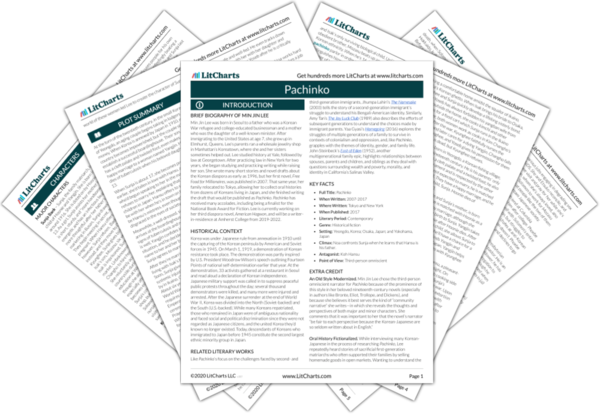Having attended Western schools all his life, Solomon is sometimes chattier than is the norm. When the clerk makes a racially tinged remark in response, Mozasu shows a relatively rare moment of reflectiveness. Japanese-born Koreans like themselves are stuck between two nations and must expect to fight for survival, even though they’ve lived here for decades.
